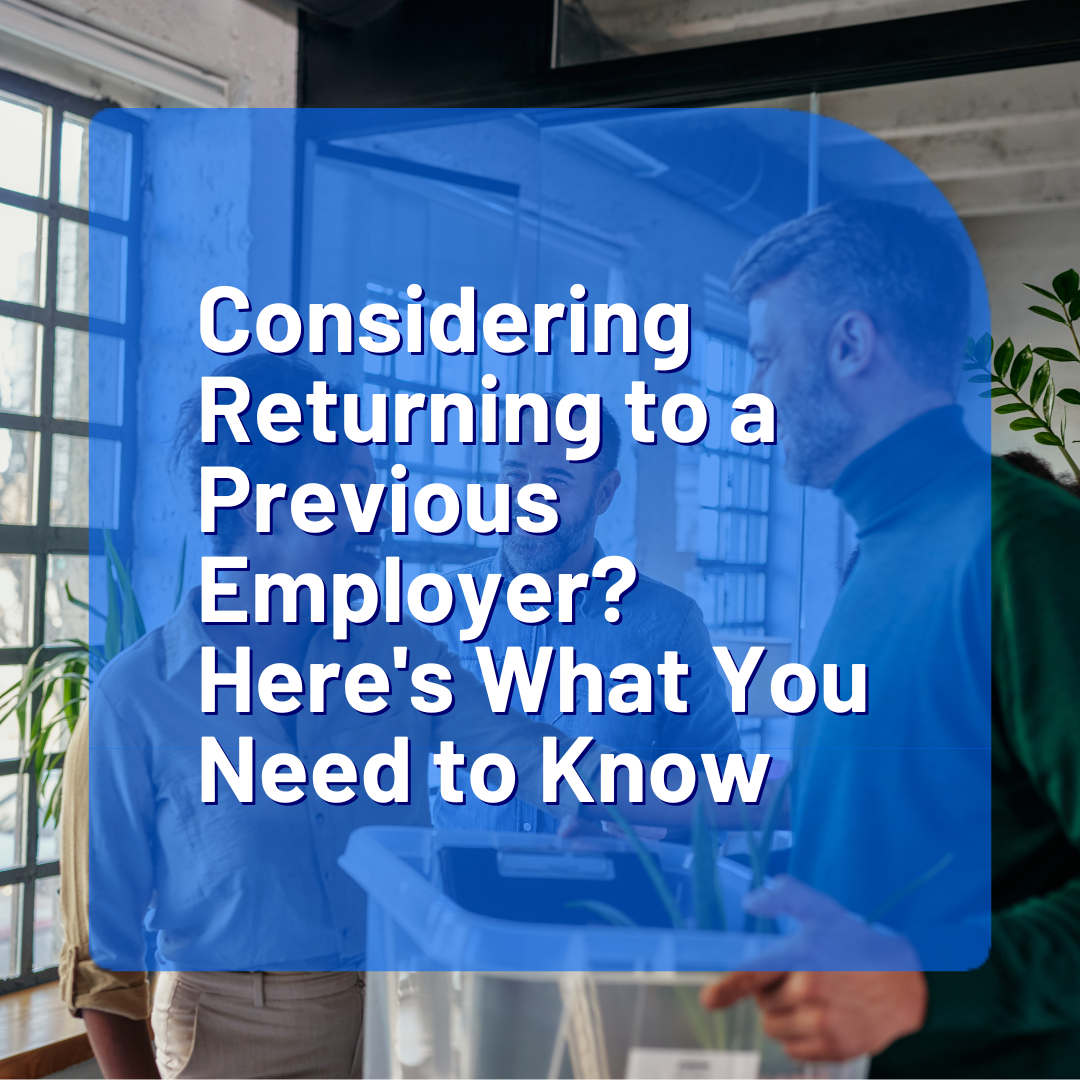In today’s fast-moving job market, it’s not uncommon to consider returning to a former employer—a decision often referred to as becoming a “boomerang employee.” Whether you’re motivated by new opportunities, changes in your personal circumstances, or the comfort of familiarity, rejoining a previous workplace can be a strategic career move.
But is it the right step for you? At jobs24, we’re here to help you weigh the benefits, challenges, and strategies for making a successful return.
The Benefits of Going Back to a Former Employer
- Familiarity with the Workplace
One of the biggest advantages is the sense of familiarity. You already know the company’s culture, values, and processes, which can make the transition smoother. - Reconnecting with Colleagues
Returning to a team you’ve worked with before can fast-track collaboration and productivity. These established relationships can help you settle back in quickly. - Saving Time on Onboarding
Since you’re already familiar with the systems and workflows, you’re likely to need less training. This can help you hit the ground running and demonstrate value right away. - Opportunities for Growth
If your reason for leaving was limited growth opportunities, returning in a new or more senior role could offer the professional development you were seeking. - A Positive Signal
Rejoining a former employer demonstrates mutual respect. It shows that you valued your experience there and that they recognised your talent enough to welcome you back.
Things to Consider Before Returning
- Why Did You Leave?
Be honest with yourself about the reasons you left in the first place. Was it about management, culture, career stagnation, or work-life balance? Have these issues been addressed since your departure? - What Has Changed?
Companies evolve. Leadership, policies, team dynamics, or even your old role may have shifted. Speak with current employees or your prospective manager to get a clear picture of the company today. - Are Your Expectations Realistic?
It’s important to remember that returning won’t be exactly like picking up where you left off. Approach the opportunity with fresh eyes and a willingness to adapt to changes. - Does It Align with Your Career Goals?
Think about your long-term ambitions. Will returning to this company support your goals, or could it limit your growth? Be sure you’re making the move for the right reasons—not just for familiarity or comfort.
How to Approach a Return
If you’re ready to take the plunge and rejoin a former employer, here’s how to make the most of the opportunity:
- Be Transparent
When discussing your return, be honest about your reasons for coming back. Highlight how your skills and experience have grown since you left, and explain why you’re excited to rejoin the team. - Clarify the Role
Make sure you and your employer are aligned on the role’s responsibilities, expectations, and opportunities for growth. Avoid assuming that things will be exactly as they were before. - Treat It as a New Start
Even though you’re familiar with the company, approach your return with fresh enthusiasm. Demonstrate commitment and adaptability to show you’re ready to contribute in meaningful ways. - Be Open to Change
Remember that the company may have evolved since your departure. Embrace any changes with flexibility and a positive attitude to ease your reintegration.
Why Employers Welcome Boomerang Employees
Employers often see the value in rehiring former team members. Here’s why:
- Proven Experience: You bring institutional knowledge as well as new skills gained elsewhere.
- Lower Risk: As someone who’s already worked in the company, you’re a known quantity, which reduces the uncertainty of hiring.
- Faster Impact: Your familiarity with the organisation means you can start contributing more quickly than a completely new hire.
For employers, re-employing a former worker also reinforces their brand as a desirable place to work. After all, if someone is willing to return, it reflects positively on the organisation.
The Pros and Cons of Returning
Pros
- Stronger Relationships: You’ve already built trust with colleagues and managers, which can lead to better collaboration.
- Career Growth: Returning in a higher-level role can give you the advancement you were seeking.
- Familiar Systems: You won’t have to navigate a steep learning curve when it comes to processes and tools.
Cons
- Risk of Stagnation: If the role hasn’t changed much, you may find yourself feeling stuck again.
- Unresolved Issues: If the reasons you left haven’t been addressed, they could resurface and lead to dissatisfaction.
- Perception Challenges: You might need to prove your commitment and overcome any scepticism about your decision to leave initially.
Conclusion
Rejoining a former employer can be a rewarding experience, offering opportunities for growth, reconnection, and new challenges. However, it’s vital to reflect on your reasons for leaving, assess how the company has changed, and ensure the move aligns with your long-term goals.
At jobs24, we understand that finding the right job is about more than just a title or paycheck—it’s about fit, growth, and satisfaction. If you’re considering returning to a previous employer, take the time to evaluate your options carefully and approach the opportunity with a fresh perspective.
Sometimes, the second time around can be even better than the first.
Do you want to find something new? Search jobs24 now!
